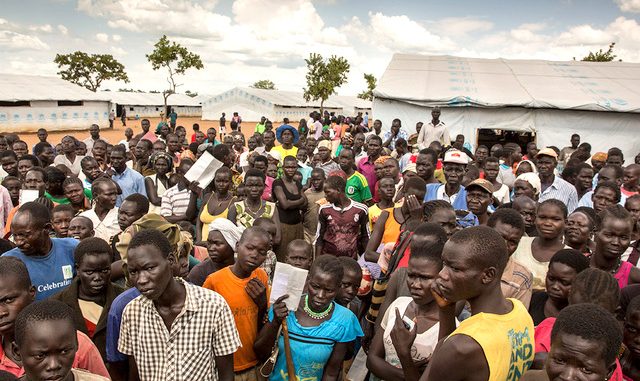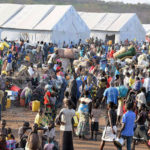War Child is set to launch ‘Can’t Wait to Learn’ program in Refugee Settlement in western Uganda. The program is part of the INCLUDE project funded by the European Commission’s Civil Protection and Humanitarian Aid Operations (ECHO).
This landmark event signals a light at the end of the tunnel for thousands of conflict-affected children across the country. High-ranking officials including Dr. Joyce Moriku, the State Minister of Education will be in attendance as well as key UNHCR representatives.
Since COVID-19 swept the country, the tablet-based e-learning programme has offered a vital alternative to learning in the classroom. Besides it flexible operating model – the tablets don’t require an active internet connection – the delivery of the programme has also been carefully adapted to meet the needs of the changing environment.
As part of the transition to remote learning, COVID-19 awareness-raising was incorporated, for example, through water, sanitation and hygiene materials. Can’t Wait to Learn teachers and ‘facilitators’ go house-to-house to check in with children on their learning progress and clean and re-charge the tablets.
“War Child staff conduct routine checks on us and my mother was taken through the ‘Caregiver Manual’ which helps her support me when I’m stuck”, says Scovia (10) who lives in Rhino Camp. “I enjoy the phonics games, my reading is improving – there are a lot of interesting stories which motivate me to complete.”
Despite increased access challenges due to nationwide lockdowns, War Child’s mobile teams have succeeded in reaching 3,125 children in 8 refugee settlements in the last 18 months.
Now, they will extend their support to Kyangwali, with plans to reach an additional 705 children by the close of the year.
For children like 14-year-old Violet – a refugee from South Sudan – this can’t come quick enough. “I used to enjoy school with my friends – we would play, share ideas and go to class together”, says Violet. “When schools closed, I became bored. I wander the streets; moving from place to place.”
As 77-weeks of hard-closures look set to hold until January, Violet and others have no other option but to stay home. With many parents unable to put food on the table and tensions rising, children are at heightened risk of domestic violence, child labour and other forms of exploitation.
Besides its potential to transform their future, Can’t Wait to Learn offers children hope and has been proven to contribute to improved self-esteem. “In several country contexts, research shows that the creative educational games have a measurable positive effect on children’s wellbeing”, says Felicity Brown, War Child Regional Senior Researcher.








